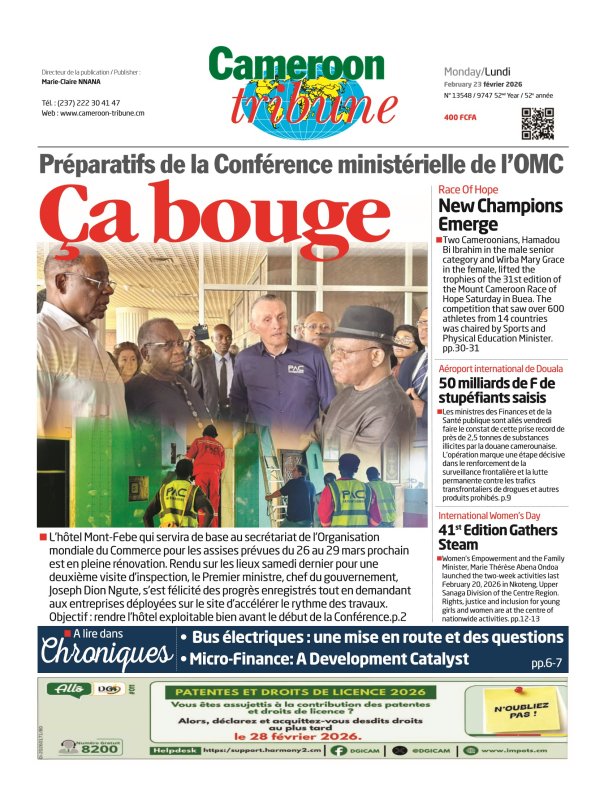National Unity Is Not Just A Slogan
- Par Richard Kometa
- 11 Nov 2025 11:31
- 0 Likes
Building a country depends on various components. There are certainly laws and rules that combine to govern the way people cohabit, but also the will power of leadership to harness those legal structures and the daily realities of the population matter. In a country like Cameroon that is so diverse, the different ethnic groups, linguistic entities, and sociological classes must make a conscious effort to accept the tenets that bind them as homogeneous society. And as political leaders come up with slogans to project their visions for the country, especially during electoral periods, there is the need to peg such desires on the fundamental laws of the land which revolve around the Constitution. That is why national unity has not only been the cornerstone of all messages by the various political parties, but is enshrined in the fundamental law of the land.
Over the years, President Paul Biya has been consistent about his determination to foster the sense of nationhood throughout the entire country and several situations have emerged to demonstrate how volatile Cameroon can become if the pillars of unity are not well implanted. If the usual post-electoral periods come with some instances of tension and violence, they at time go beyond the mere expression of collective dissatisfaction with the election results. It is almost a habitual pattern that most growing democracies in Africa are yet to cope with the notion of electoral defeat. Many come with the certainty to either take the day or decry electoral heist with the likely consequences of inciting the already fragile population to public demonstrations that often turn sour. Scholars define a slogan as “A short memorable phrase used to express an idea or purpose, often in advertising, politics, or by a group. Its purpose is to attract attention, promote a brand or candidate, or rally support for a cause. Examples include the advertising slogan for a product, such as “I’m cuckoo for cocoa puffs”, or a political campaign slogan, like “Yes we can.” But once a value like national unity is inscribed in the Constitution, it cannot be confused with any form of slogan.
Instances of public uprisings that have resulted in either loss of lives or property have hardly left anyone indifferent, let alone the Head of State who takes an oath of office to defend the Constitution. Of course, there are policies that are either being implemented or have been earmarked to enable the country meet set objectives. Such are part of the building blocks that matter in helping the country not only to move forward, but also contribute in bringing the rest of the population on board. Successfully carrying out such key projects no doubt plays a vital role in reinforcing national unity in that they enable all parts of the country to belong through the development endeavours in their areas. That is where a discourse such as getting the country to the level of a middle-income economy by 2035 fits in. Cameroon is just a decade away from the date and those that have the challenge to accompany the Head of State in the new seven-year tenure that begins last 6 November, 2025 will therefore be expected to serve as architects of the “Greatness and Hope” slogan Mr Biya presented to the Cameroonian people before the election. Th...
Cet article complet est réservé aux abonnés
Déjà abonné ? Identifiez-vous >
Accédez en illimité à Cameroon Tribune Digital à partir de 26250 FCFA
Je M'abonne1 minute suffit pour vous abonner à Cameroon Tribune Digital !
- Votre numéro spécial cameroon-tribune en version numérique
- Des encarts
- Des appels d'offres exclusives
- D'avant-première (accès 24h avant la publication)
- Des éditions consultables sur tous supports (smartphone, tablettes, PC)











Commentaires